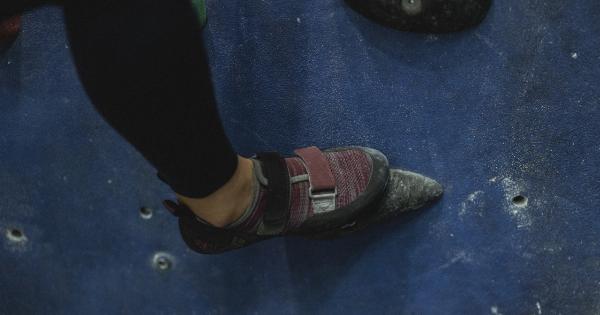Living a balanced life is often touted as the key to overall well-being. It involves striking a harmonious equilibrium between various aspects of life such as work, relationships, physical activity, and self-care.
When we achieve this balance, we experience improved mental and physical health. However, it might come as a surprise that living a perfectly balanced life can actually lead to the development of osteoporosis.
Understanding Osteoporosis
Osteoporosis is a medical condition characterized by weakened and brittle bones, making them more prone to fractures and breaks. It primarily affects older individuals, especially women after menopause.
The main cause of osteoporosis is a loss of bone mass, which happens when new bone formation cannot keep up with the removal of old bone.
The Importance of Balance
Striving for balance in life is generally considered beneficial. It allows us to manage stress, maintain healthy relationships, and prioritize self-care.
A balanced lifestyle typically involves a nutritious diet, regular exercise, sufficient sleep, and a fulfilling work-life balance. However, when it comes to bone health, excessive balance can have unintended consequences.
The Role of Physical Activity
Physical activity is often recommended for maintaining good bone health. Weight-bearing exercises, such as walking, jogging, or resistance training, help stimulate bone growth and reduce the risk of osteoporosis.
However, overdoing it by constantly engaging in high-impact activities without adequate rest and recovery can put excessive stress on the bones, leading to increased risk of fractures and osteoporosis.
Exercise Intensity and Bone Health
While exercise is important for bone health, the intensity and duration of physical activity play a crucial role.
High-intensity and excessive exercise can disrupt the natural balance of bone remodeling, inhibiting bone formation and increasing the risk of osteoporosis. It is important to strike a balance between low-impact exercises, moderate-intensity activities, and sufficient rest periods for optimal bone health.
The Myth of Perfect Nutrition
Eating a well-balanced diet rich in calcium and vitamin D is often recommended to support bone health. However, excessive focus on perfect nutrition, meticulously counting every calorie and micronutrient, can lead to an unhealthy obsession with food.
Restrictive dieting or an overly cautious approach to food choices can result in inadequate nutrient intake, predisposing individuals to nutrient deficiencies that negatively impact bone density, ultimately leading to osteoporosis.
Stress and Bone Health
Managing stress is another crucial aspect of living a balanced life. Chronic stress has been linked to various health issues, including osteoporosis.
Stress hormones, such as cortisol, can interfere with bone remodeling, leading to a decrease in bone density. An excessively balanced life that revolves around constant achievement and productivity may inadvertently lead to high levels of stress, thereby increasing the risk of osteoporosis.
The Importance of Rest and Recovery
In a society that glorifies productivity and constant activity, rest and recovery often take a backseat. However, they are essential for maintaining overall health, including bone health.
Adequate rest periods allow bones to recover from daily wear and tear, ensuring optimal bone remodeling and reducing the risk of osteoporosis. An excessively balanced lifestyle that neglects rest can disrupt this delicate balance and potentially lead to weakened bones.
Social Isolation and Bone Health
While maintaining healthy relationships is an important aspect of a balanced life, social isolation can have negative consequences on bone health.
Research has shown that individuals who lack social connections and live in isolation tend to have lower bone mineral density, which increases the risk of osteoporosis. Striking a balance between social interactions and personal space is crucial for both mental well-being and bone health.
Genetic Predisposition and Bone Health
It’s worth noting that genetics also play a significant role in determining an individual’s susceptibility to osteoporosis. Some individuals may have a genetic predisposition to weaker bones, regardless of their lifestyle choices.
While living a balanced life can contribute to optimal bone health, it cannot completely eliminate the risk of osteoporosis for those with a genetic predisposition.
The Need for Individualized Balance
Instead of striving for a one-size-fits-all notion of balance, it is crucial to understand that balance looks different for everyone.
Achieving balance requires an individualized approach that considers factors such as age, physical condition, and personal risk factors for osteoporosis. Consulting with healthcare professionals, including doctors and nutritionists, can provide valuable guidance in striking the right balance for optimal bone health.
Conclusion
Living a balanced life is undoubtedly important for overall well-being, but it’s essential to recognize that excessive balance can have unintended consequences when it comes to bone health.
While exercise, nutrition, stress management, and social connections are important for maintaining optimal bone health, it is crucial to strike a balance that aligns with individual needs and genetic predispositions. By finding this personalized balance, individuals can lead fulfilling lives while minimizing the risk of developing osteoporosis.































